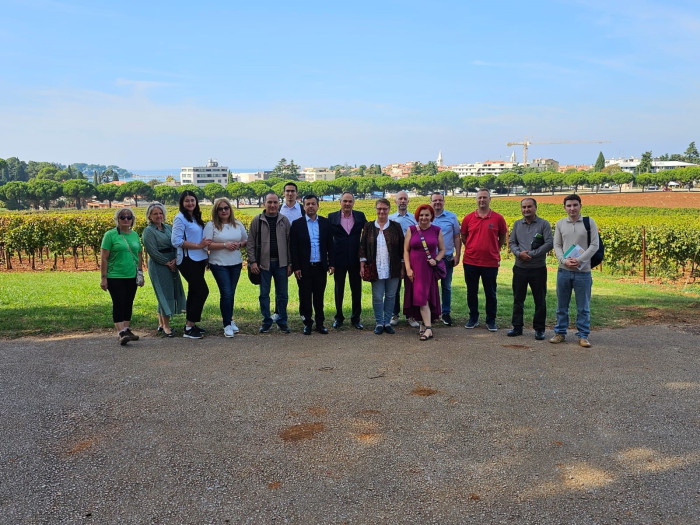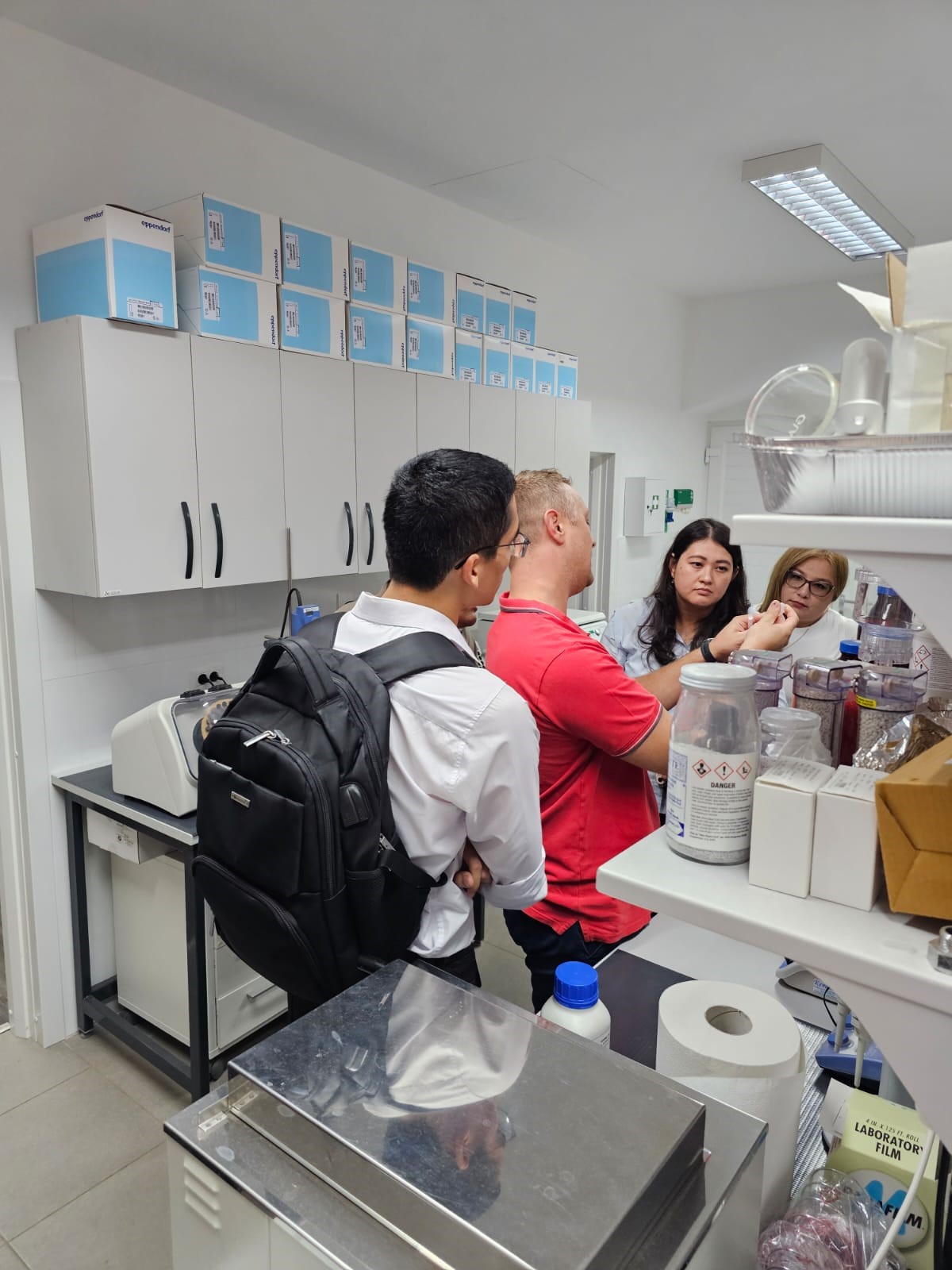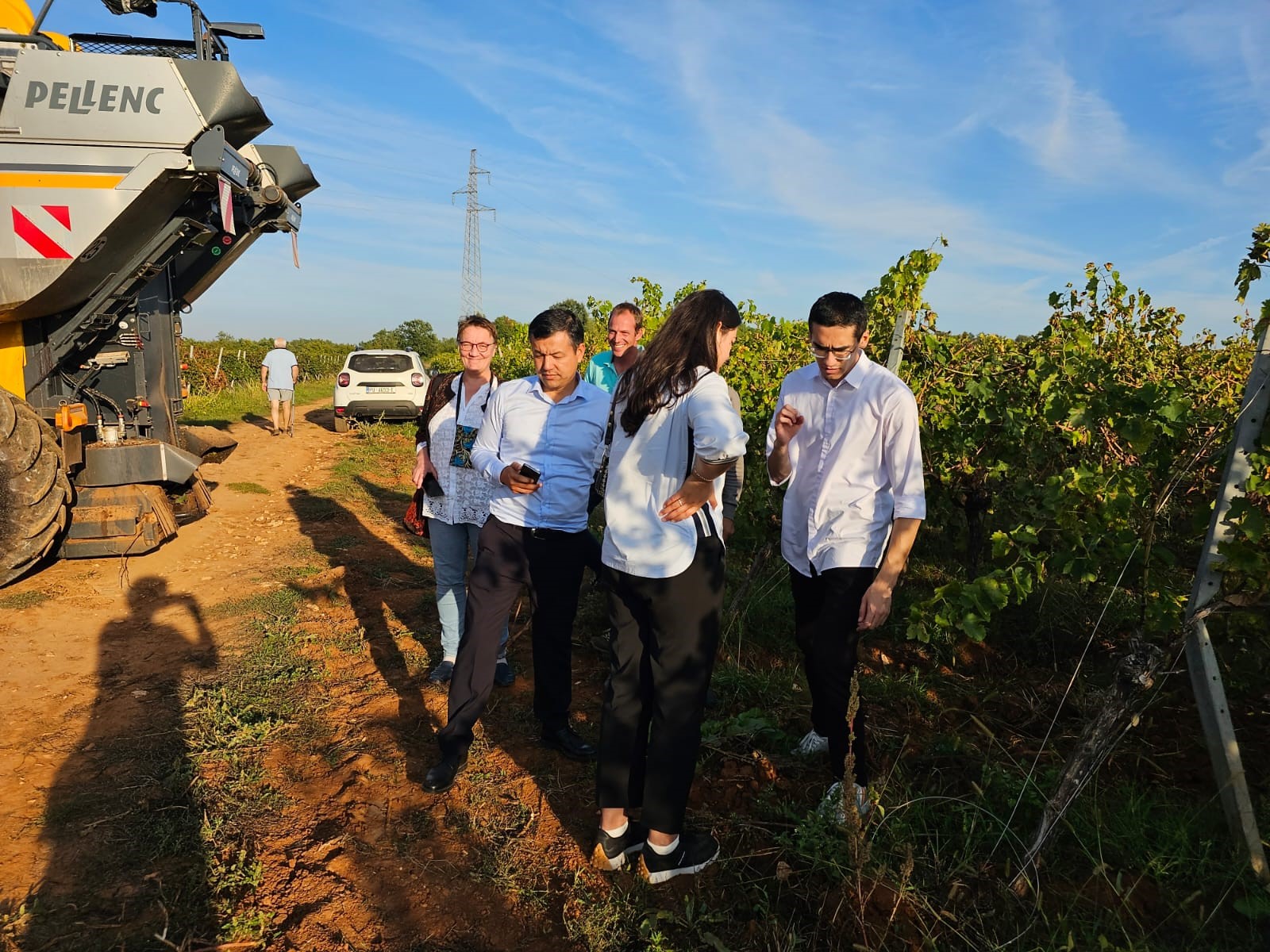
Currently, the economy of Uzbekistan is considered as one of the fastest growing economies in Central Asian region. By the end of 2022, Uzbekistan’s foreign trade turnover has increased by 18.6% and a significant share is made up of fruits, vegetables, and plant products, which can increase the risks of spreading harmful organisms that can cause substantial economic as well as health damage of plants, animals and people.
The Deutsche Gesellschaft für Internationale Zusammenarbeit (GIZ) in Uzbekistan pays considerable attention to support the Government of Uzbekistan in implementation of measures aimed at introducing international standards and rules in the field of quarantine and plant protection.
The project "Development of animal husbandry and plant health and strengthening of the Veterinary and Animal Husbandry Committee and the Plant Quarantine and Protection Agency in Uzbekistan" is financed by GIZ and implemented by AFC Agriculture & Finance Consultants. The project includes activities to build the capacity of the Agency’s specialists and other organizations involved. As part of the project, several study visits are planned with the aim of strengthening international cooperation. The most recent tour was organized by AFC and included visits to the Institute for Agriculture and Tourism in Poreč and agriculture producers in the Istria County and Zagreb County in Croatia in the period from 30th of September to 7th October 2023.
Croatia was chosen for the study visit for a number of reasons. First, Croatia has been a Member State of the European Union for about ten years. The Phytosanitary sector, agricultural policy and institutional framework in Croatia are therefore in line with the strict EU requirements. All the relevant EU legislation is transposed and is effectively implemented in Croatia. Considering this, the delegation from Uzbekistan had an opportunity to see, learn and assess how to function in a context of demanding EU standards in areas of science, agriculture, food safety and plant health.

Furthermore, Croatia has the most recent experience in deep reforms carried out, as Croatia is the youngest Member State of the European Union. In the accession and negotiation process, Croatia had to perform numerous reforms in all sectors.
Similarities to the efforts seen today in Uzbekistan are very prominent. Uzbekistan started deep reforms in many sectors. Radical improvement in the institutional system is a commitment. Uzbekistan wants to participate in global trade, to open its markets, to improve its science, to develop agriculture and to make progress for the benefit of its people and global community. The study visit, as well as the whole project, may be regarded as small steps in achieving this aim. Learning from similar experiences is highly valuable.
Therefore, this study visit consisted of visits to the regional scientific institutes like the Institute for Agriculture and Tourism in Poreč, as well as agricultural producers and professional operators in Istria and Zagreb region. Participants of the study tour were acquainted with the organization and activities of the institut, legal and financial structures, services of the Institute offered on the market, the role of the Institute in national and local science and agriculture as well as scientific achievements and projects of the Institute were presented. On top of this, participants visited six laboratories of the Institute. Namely the Laboratory for plant protection; the Laboratory for soil, plant, and water; the Laboratory for vine; the Laboratory for food and biotechnology; the Genetics laboratory and the Phenotyping laboratory.

Field visits were an integrated part of the Study Tour, were the group visited for example experimental fields of vine and olives or were shown examples of basic concepts of plant health systems and practical arrangements in plant quarantine. Other field visits demonstrated different official activities related to the areas of Integrated Pest Management and sustainable use of pesticides in the EU. All these field visits showed the significant role of diagnostic laboratories for harmful organisms, institutes, extension services, scientists, experts, and official bodies in the phytosanitary system.
The study tour resulted in Memorandum of Understanding signed between the Research Institute of Plant Protection under the Agency for Quarantine and Plant Protection of the Republic of Uzbekistan and the Institute of Agriculture and Tourism of the Republic of Croatia. Parties agreed to cooperate on development of a system for analysis and assessment of phytosanitary risks, joint preparation of guidelines in various areas of plant protection, development of effective methods for disinfecting plants and plant products and including usage of environmentally friendly chemicals. At the same time, the Croatian Institute of Agriculture and Tourism will provide support for joint research to improve the quality of seeds and planting material, as well as assistance in providing capacity-building activities for Uzbek specialists.
For more information, please contact: NinaKristin.Thurn [at] afci.de
